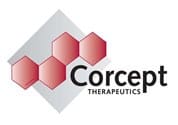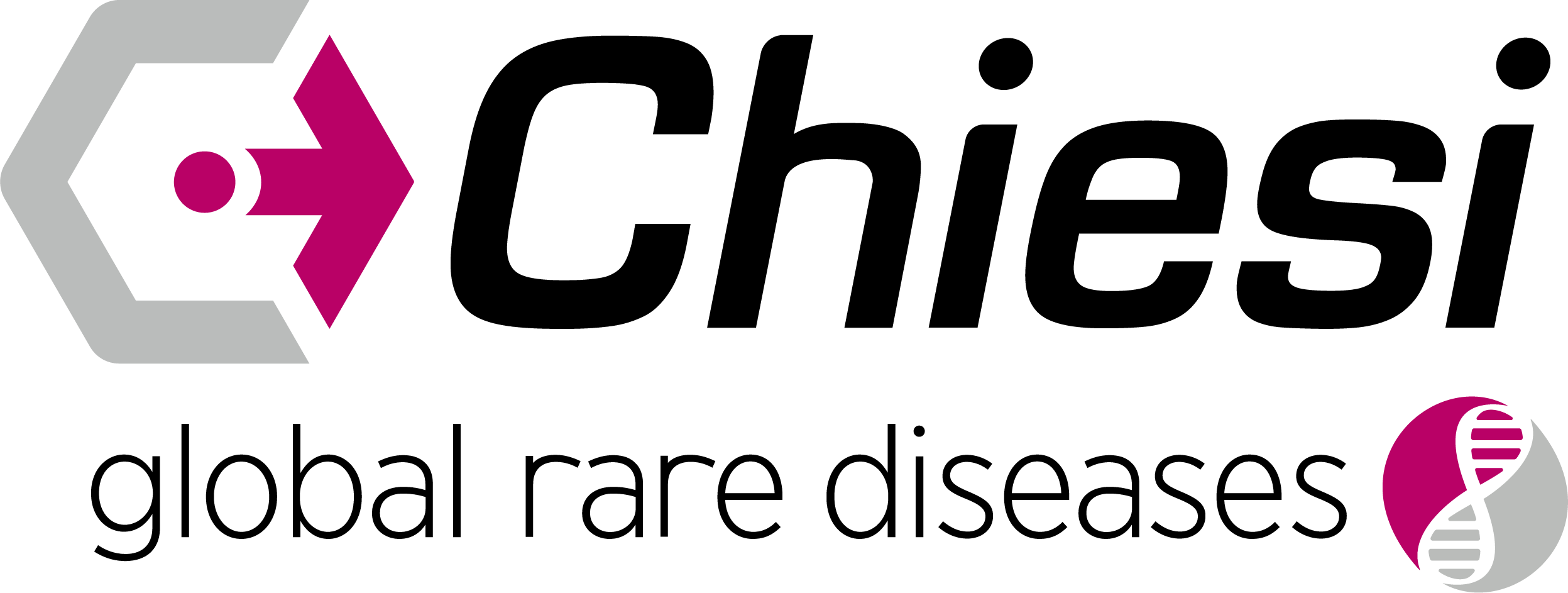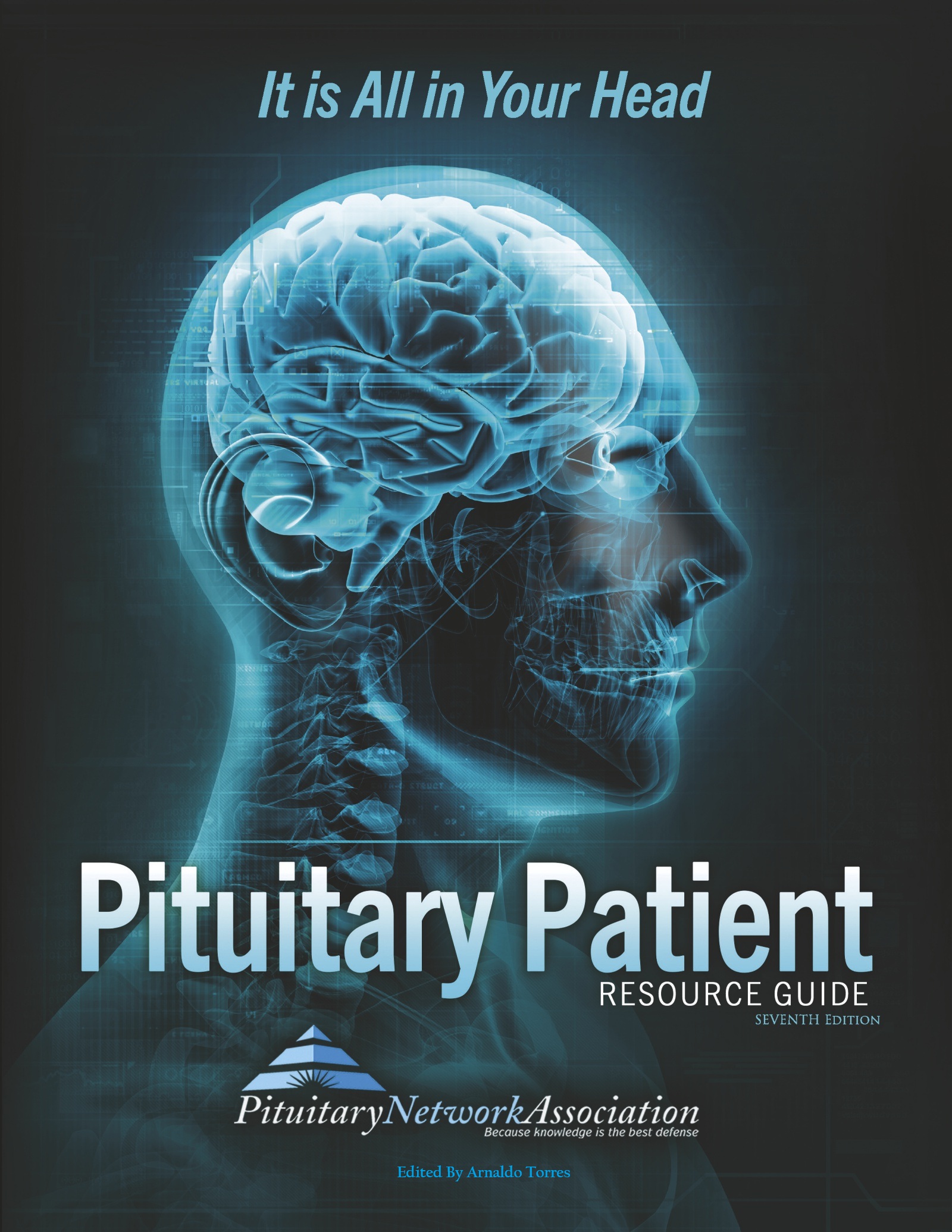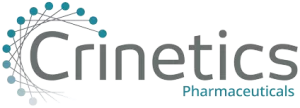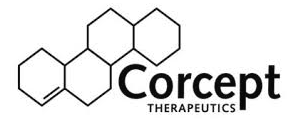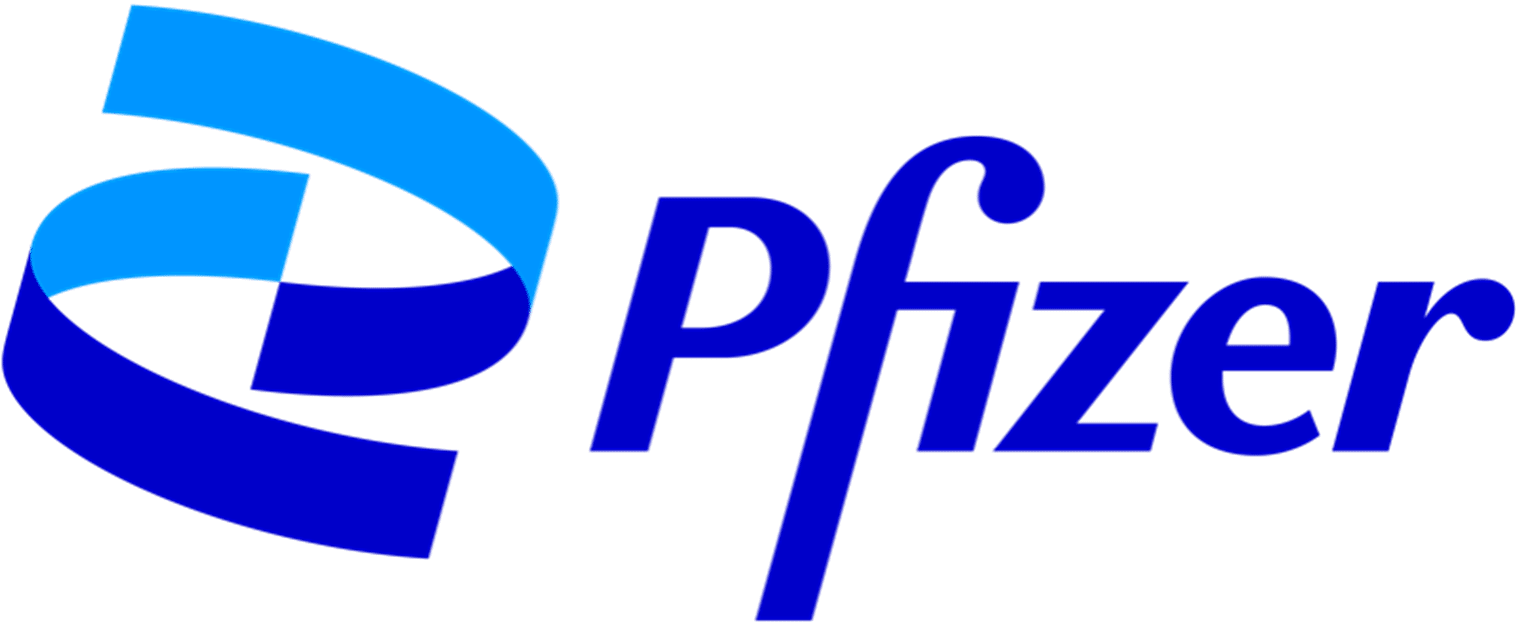News Articles February 2022
Written on 04 February 2022.
News Articles June 2021
Study Recommends Ideal Post-Pituitary Surgery Diet
Pituitary Journey: Thriving After Cushing’s
A former competitive athlete named Paris Dancy recounts his battle with Cushing’s in an article in Cushing’s Disease News. Read more:
Cushing’s and Diabetes: A Case Study
An article in Clinical Advisor looks at the case of a man with diabetes who was subsequently treated for a macroadenoma/Cushing’s Disease. Doctors aren’t sure if Cushing’s pre-dated the diabetes. Read more:
Psychological Symptoms Lead to Diagnosis of Pituitary Tumor
An article in Psychology Today looks at mental health diagnoses and presents the case of a woman in her thirties who experienced severe mood swings and was subsequently treated for a pituitary tumor. Read more:
Dr. Diagnosed With Cushing’s Post-Pregnancy
 An article in the Miami Herald spotlights the case of a family medicine doctor named Irmanie Hemphill who noticed weight gain, acne and high blood pressure six weeks after giving birth. She sought treatment and was diagnosed with Cushing’s disease. Read more:
An article in the Miami Herald spotlights the case of a family medicine doctor named Irmanie Hemphill who noticed weight gain, acne and high blood pressure six weeks after giving birth. She sought treatment and was diagnosed with Cushing’s disease. Read more:
Photo caption: Dr. Irmanie Hemphill (Courtesy F.S.U.)
Take Control of Your Acromegaly and Be Heard.
 “Acromegaly can be overwhelming and scary, but with the right support system, the right medical team, and our community of patients, you will be surprised by how incredibly resilient you can become.”
“Acromegaly can be overwhelming and scary, but with the right support system, the right medical team, and our community of patients, you will be surprised by how incredibly resilient you can become.”
Allison’s journey with acromegaly has been a bit unusual. From experiencing symptoms that weren’t typical to having symptom onset earlier in her life, Allison struggled to find an accurate diagnosis. However, she never stopped advocating for herself. Whether she was seeking additional opinions or voicing her own thoughts on potential treatment options, Allison made sure that she was heard. Now, she’s dedicated to doing the same for other people living with rare diseases such as acromegaly.
“Physically, I was managing. Emotionally, it was hard to accept my new normal. Connecting with other people who have acromegaly made me feel less alone and helped me accept my diagnosis.”
Allison considers herself a bit of an unusual acromegaly patient. The symptoms that led to her diagnosis weren’t what you typically see in a patient living with acromegaly. She experienced the development of painful lumps in her breasts. The pain was eventually too much that it kept her up at night. On top of that, she started experiencing night sweats.
“I thought, what was going on? I’m in my 20s. I definitely can’t be going through menopause.”
Allison finally decided to meet with doctors about getting a double mastectomy because the lumps in her breasts were becoming so painful. Before she did, Allison scheduled an appointment with an endocrinologist because she felt like something might be going on with her hormones. Outside of the lumps, she was experiencing random symptoms like excessive sweating, joint pain, back pain, and fatigue that all seemed unrelated to each other.
Thankfully, Allison’s endocrinologist, Dr. Lewis Blevins, medical director of the California Center for Pituitary Disorders at UCSF Medical Center, was very thorough with his testing. After studying her facial features, he decided to run a full hormone panel and test her IGF-1 levels. Allison had just celebrated her 30th birthday when she received her results, showing that her IGF-1 levels were very high. Due to these results, Dr. Blevins suspected she might have acromegaly due to a pituitary tumor, and his suspicions were later confirmed by an MRI.
Initially, the doctors told Allison everything went well with the surgery; however, a follow-up MRI showed residual tumor and additional testing revealed that her hormones had barely changed.
“Hearing that the surgery wasn’t successful and that I would need more treatment for my acromegaly was devastating.”
After a lot of deliberation with her endocrinologist around treatment options, Allison decided that radiation wasn’t appealing. She didn’t have any children yet, but she still wanted them. She ended up on an injection that was administered every 28 days; however, the needle was quite large, and she developed painful lumps around the site which took a long time to heal. In addition, Allison has a huge needle phobia!
Receiving injections was already proving to be a challenge for Allison, and the COVID-19 pandemic didn’t help. The office she went to for the injections wouldn’t let patients in without a negative COVID-19 test if they were experiencing symptoms. Unfortunately, some of the acromegaly symptoms, like headaches, are also symptoms of COVID-19. Allison knew something had to change. Thanks to new information being shared online, Allison learned about a new treatment option that would alleviate some of those burdens.
Through a community leader, Allison learned about a clinical trial for MYCAPSSA® (octreotide), an oral prescription medicine used in the long-term maintenance treatment of acromegaly in people for whom initial treatment with octreotide or lanreotide has been effective and tolerated. In Allison’s mind, having an oral treatment for acromegaly would help her regain control and be done with the painful injections. So once MYCAPSSA was approved by the FDA, she was over the moon.
Not one to sit around and wait for her doctor to make the decisions, Allison took charge. She reached out to the Chiasma Access and Patient Support (CAPS) team and Dr. Blevins to see if she could start using MYCAPSSA as soon as possible. Her endocrinologist went over the possible side effects, including headache, joint pain, nausea, weakness, diarrhea, and sweating a lot. She was also told that MYCAPSSA may cause problems with the gallbladder and that her doctor would monitor her thyroid levels, vitamin B12 levels, and blood sugar while on the medication.
Allison considers her transition to MYCAPSSA to be smooth. The biggest adjustment was figuring out the timing of taking the medication since it has to be on an empty stomach. To address this, Allison added an alert on her phone notifying her when to eat or take her medication. So far, Allison is very happy with MYCAPSSA and fortunate enough to not have any side effects. This is just her experience, yours may be different.
“As a patient, you have to make yourself a priority and have the tough conversations with your doctor.”
Her experience advocating for herself as a patient and her professional work, made Allison want to help others achieve the same results. That’s why Allison was so excited and grateful to work with Dr. Blevins and the Chiasma team to model conversations patients can have with doctors. Her experiences have now been translated into two unique educational resources for patients: a discussion guide called “Be Heard: A Guide to Discussing Treatment” and live audio “Real Talk: Making Yourself Heard in Treatment Discussions.” These tools will teach patients to advocate for themselves by providing treatment discussion tips, incorporating tips on how to make the most of your physician visits, and highlighting how to discuss a transition to MYCAPSSA with healthcare providers. You can listen to the helpful strategies on how to make yourself heard on https://mycapssa.com/resources/. It’s more important than ever for patients to truly be heard.
Since Allison’s transition was so smooth and MYCAPSSA helped alleviate some of her treatment burdens, she felt that it was important to be vocal about speaking up for yourself as a patient. For some, living with acromegaly makes it hard to feel like they’re in control. MYCAPSSA gave Allison the control over her daily life and schedule that she desired.
“Without acromegaly, there are so many people I’d never have met who have inspired me and led me to be an advocate for other patients.”
This is Allison’s personal experience living with and managing acromegaly. Other people’s experiences may differ. To watch Allison’s video and for more information about MYCAPSSA, visit www.MYCAPSSA.com.
INDICATION AND IMPORTANT SAFETY INFORMATION
What is MYCAPSSA (octreotide) for?
MYCAPSSA is an oral prescription medicine used in the long-term maintenance treatment of acromegaly in people for whom initial treatment with octreotide or lanreotide has been effective and tolerated.
If these treatments are effective and your body is tolerating it, you may be eligible to take MYCAPSSA instead of the injections. Ask your doctor if this oral treatment is appropriate for you.
What is the most important safety information I should know?
MYCAPSSA can cause problems with the gallbladder. Tell your healthcare provider if you have any of these symptoms: sudden pain in your upper right stomach (abdomen) or right shoulder or between your shoulder blades; yellowing of your skin or the whites of your eyes; fever with chills; or nausea.
MYCAPSSA may affect your blood sugar, thyroid hormone, or vitamin B12 levels. Tell your healthcare provider if you have any problems or conditions related to these. Your healthcare provider may monitor these levels during your treatment with MYCAPSSA.
Tell your healthcare provider if you have an irregular heartbeat.
Who should not use MYCAPSSA?
MYCAPSSA can cause a serious allergic reaction including anaphylactic shock. Stop taking MYCAPSSA right away and get emergency help if you have any of these symptoms: swelling of your tongue, throat, lips, eyes or face; trouble swallowing or breathing; severe itching of the skin with rash or raised bumps; feeling faint; chest pain; or rapid heartbeat.
Do not use MYCAPSSA if you are allergic to octreotide or any other ingredients in MYCAPSSA. If you need to know the ingredients, ask your healthcare provider or pharmacist.
If you have certain other medical conditions, you should use MYCAPSSA with caution. Tell your healthcare provider about all your medical conditions, especially the following: pregnancy or breastfeeding; liver disease; kidney disease; or difficulty in emptying bladder completely.
Tell your healthcare provider about all the medicines you take. MYCAPSSA may affect the way other medicines work, and other medicines may affect how MYCAPSSA works.
What are the possible side effects of MYCAPSSA?
The most common side effects are headache, joint pain, nausea, weakness, diarrhea, and sweating a lot.
Talk to your healthcare provider if you have any side effect that bothers you or that does not go away. You may report side effects to the FDA at 1-800-FDA-1088.
Keep MYCAPSSA and all medicines out of the reach of children.
How should I take MYCAPSSA?
Do not take MYCAPSSA with food. MYCAPSSA should be taken with a glass of water on an empty stomach. Take MYCAPSSA at least 1 hour before a meal or at least 2 hours after a meal (for example, you could take your morning dose 1 hour before breakfast and your evening dose at bedtime).
©2020 Chiasma, Inc. All rights reserved. MYCAPSSA and Chiasma are registered trademarks of Chiasma, Inc. PM-MC-US-0145 08/2020
FDA Decision on Recorlev for Endogenous Cushing’s Expected Early 2022
By Marisa Wexler MS on May 14, 2021
The U.S. Food and Drug Administration (FDA) is reviewing an application from Strongbridge Biopharma seeking the approval of Recorlev (levoketoconazole) for the treatment of endogenous Cushing’s syndrome.
A final decision from the FDA is expected by Jan. 1, 2022 — meaning that Recorlev’s approval request will follow the standard 10-month review period.
Strongbridge was notified of the action target date in an official letter from the U.S. regulatory agency, which was issued earlier than expected.
“We are pleased with the FDA’s acceptance for filing of the Recorlev (levoketoconazole) new drug application,” John H. Johnson, Strongbridge’s CEO, said in a press release.
“We are advancing our commercial readiness plans and look forward to potentially bringing a new therapeutic option to the Cushing’s syndrome community in the first quarter of 2022,” Johnson said.
Endogenous Cushing’s syndrome is caused by abnormally high levels of the stress hormone cortisol, usually due to the presence of a benign tumor in the brain’s pituitary gland or in the adrenal glands, which sit atop the kidneys. Recorlev is designed to block cortisol production in the adrenal glands.
Strongbridge submitted a new drug application (NDA) for Recorlev in March. According to the company, the FDA’s letter notifying that the NDA had been accepted for review did not mention a plan to hold an advisory committee meeting.
The company’s NDA submission was mainly supported by data from two Phase 3 studies: SONICS (NCT01838551) and LOGICS (NCT03277690).
SONICS enrolled and treated 94 people with endogenous Cushing’s, with promising results. Specifically, 30% of participants saw their cortisol levels normalize after six months of treatment with Recorlev, without requiring any dose increments during that period.
LOGICS enrolled participants from SONICS, as well as additional patients, and evaluated the effects of Recorlev withdrawal. The results indicated that withdrawing the investigational treatment caused patients’ urinary cortisol levels to rise.
Findings from these trials also have indicated that treatment with Recorlev can lower the risk of heart disease, ease symptoms, lower cholesterol levels and body fat, and help control diabetes in people with endogenous Cushing’s syndrome.
Quality of life was found to be improved and depression lessened after treatment with Recorlev.
The NDA also included safety data from the ongoing, open-label OPTICS trial (NCT03621280), in which participants from previous studies will continue receiving Recorlev for up to three years.
According to Johnson, the FDA’s decision to review the NDA for Recorlev, “reflects the comprehensive clinical evidence that went into the NDA submission, including the positive and statistically significant efficacy and safety results from the multinational Phase 3 SONICS and LOGICS studies evaluating Recorlev as a potential treatment option for adults with endogenous Cushing’s syndrome.”
The U.S. Food and Drug Administration (FDA) is reviewing an application from Strongbridge Biopharma seeking the approval of Recorlev (levoketoconazole) for the treatment of endogenous Cushing’s syndrome
By Marisa Wexler MS on May 14, 2021
The U.S. Food and Drug Administration (FDA) is reviewing an application from Strongbridge Biopharma seeking the approval of Recorlev (levoketoconazole) for the treatment of endogenous Cushing’s syndrome.
A final decision from the FDA is expected by Jan. 1, 2022 — meaning that Recorlev’s approval request will follow the standard 10-month review period.
Strongbridge was notified of the action target date in an official letter from the U.S. regulatory agency, which was issued earlier than expected.
“We are pleased with the FDA’s acceptance for filing of the Recorlev (levoketoconazole) new drug application,” John H. Johnson, Strongbridge’s CEO, said in a press release.
“We are advancing our commercial readiness plans and look forward to potentially bringing a new therapeutic option to the Cushing’s syndrome community in the first quarter of 2022,” Johnson said.
Endogenous Cushing’s syndrome is caused by abnormally high levels of the stress hormone cortisol, usually due to the presence of a benign tumor in the brain’s pituitary gland or in the adrenal glands, which sit atop the kidneys. Recorlev is designed to block cortisol production in the adrenal glands.
Strongbridge submitted a new drug application (NDA) for Recorlev in March. According to the company, the FDA’s letter notifying that the NDA had been accepted for review did not mention a plan to hold an advisory committee meeting.
The company’s NDA submission was mainly supported by data from two Phase 3 studies: SONICS (NCT01838551) and LOGICS (NCT03277690).
SONICS enrolled and treated 94 people with endogenous Cushing’s, with promising results. Specifically, 30% of participants saw their cortisol levels normalize after six months of treatment with Recorlev, without requiring any dose increments during that period.
LOGICS enrolled participants from SONICS, as well as additional patients, and evaluated the effects of Recorlev withdrawal. The results indicated that withdrawing the investigational treatment caused patients’ urinary cortisol levels to rise.
Findings from these trials also have indicated that treatment with Recorlev can lower the risk of heart disease, ease symptoms, lower cholesterol levels and body fat, and help control diabetes in people with endogenous Cushing’s syndrome.
Quality of life was found to be improved and depression lessened after treatment with Recorlev.
The NDA also included safety data from the ongoing, open-label OPTICS trial (NCT03621280), in which participants from previous studies will continue receiving Recorlev for up to three years.
According to Johnson, the FDA’s decision to review the NDA for Recorlev, “reflects the comprehensive clinical evidence that went into the NDA submission, including the positive and statistically significant efficacy and safety results from the multinational Phase 3 SONICS and LOGICS studies evaluating Recorlev as a potential treatment option for adults with endogenous Cushing’s syndrome.”
Personalized Treatment for Patients with Acromegaly
Presenter Bio
Dr. Ioachimescu graduated from Carol Davila University of Medicine in Bucharest, Romania. She underwent postgraduate training in Europe in Internal Medicine and Endocrinology, focusing on pituitary diseases. Dr. Ioachimescu earned a PhD in Neuroendocrinology from the same university in 2001, then completed additional training in Internal Medicine and Endocrinology at Yale University and the Cleveland Clinic. Dr. Ioachimescu was a member of the faculty at the Cleveland Clinic before joining Emory University.
Dr. Ioachimescu’s clinical activities focus on diagnosis and endocrine management of pituitary diseases. She is Co-Director of the Emory Neuroendocrine Pituitary Center, a premier tertiary center for neuroendocrine care for patients with pituitary tumors. She oversees the activity of the neuroendocrine clinic. Dr. Ioachimescu works together with Dr. Nelson Oyesiku and a team of radiation specialists to provide streamlined, comprehensive care for pituitary patients.
Dr. Ioachimescu’s research focuses on pituitary tumors pathogenesis and outcomes, with the purpose of validation of prognostic markers and identification of novel therapies for pituitary tumors.
- Adriana Ioachimescu, M.D.
- Associate Professor of Medicine and Neurosurgery
- Co-Director, The Emory Pituitary Center
- Emory University School of Medicine
Description
Presenter Bio
Dr. Ioachimescu graduated from Carol Davila University of Medicine in Bucharest, Romania. She underwent postgraduate training in Europe in Internal Medicine and Endocrinology, focusing on pituitary diseases. Dr. Ioachimescu earned a PhD in Neuroendocrinology from the same university in 2001, then completed additional training in Internal Medicine and Endocrinology at Yale University and the Cleveland Clinic. Dr. Ioachimescu was a member of the faculty at the Cleveland Clinic before joining Emory University.
Dr. Ioachimescu’s clinical activities focus on diagnosis and endocrine management of pituitary diseases. She is Co-Director of the Emory Neuroendocrine Pituitary Center, a premier tertiary center for neuroendocrine care for patients with pituitary tumors. She oversees the activity of the neuroendocrine clinic. Dr. Ioachimescu works together with Dr. Nelson Oyesiku and a team of radiation specialists to provide streamlined, comprehensive care for pituitary patients.
Dr. Ioachimescu’s research focuses on pituitary tumors pathogenesis and outcomes, with the purpose of validation of prognostic markers and identification of novel therapies for pituitary tumors.
Management Options for Pituitary Tumors
Associate Professor of Neurosurgery
Mayfield Clinic
University of Cincinnati
Headaches and Pituitary Tumors
The webinar, “Headaches and Pituitary Tumors” will discuss the following topics:
The various types and features of headaches associated with pituitary and parasellar tumors Potential mechanisms of headache formation from pituitary and parasellar lesions Probability that pre-operative headaches would improve with surgical resection.
Recognition of red flags that should recognize a headache as an emergency
Presenter Bio
Dr. Garni Barkhoudarian is an Assistant Professor of Neurosurgery and Neuroscience at the John Wayne Cancer Institute at Saint John’s Health Center in Santa Monica, CA. Garni completed his undergraduate education at UCLA, majoring in Microbiology and Human Genetics. He attended the University of Michigan Medical School, wherein he was the Edgar A. Kahn Neurosurgery Research Fellow. He completed his Neurosurgery Residency at the UCLA Medical Center. He then completed a fellowship in Pituitary Surgery and Neuroendoscopy at the Brigham and Women’s Hospital and Harvard Medical School.
Dr. Barkhoudarian’s clinical interests are minimally invasive skull-base surgery, pituitary disorders, benign and malignant brain tumor surgery, neuroendoscopy, trigeminal neuralgia and hemifacial spasm, and mild to severe head injury / concussion. He is the director of the Brain Tumor Center Skull-Base and Endoscopic Microdissection Laboratory. Dr. Barkhoudarian is involved in a number of clinical and translational research studies, evaluating the genetics, diagnosis, treatment and results of patients with malignant metastatic tumors, meningiomas, chordomas and pituitary tumors. He is also evaluating children as well as active and former NFL athletes with chronic, repetitive concussions and brain injury. He has a special interest in the advancement of technologies for minimally invasive neurosurgical procedures.
Garni Barkhoudarian, MD
Assistant Professor of Neuroscience /Neurosurgery Brain Tumor Center & Pituitary Disorders Program
Director: Skull-Base and Endoscopic Microdissection Laboratory John Wayne Cancer Institute at Saint John’s Health Center
Description
Webinar Description
The webinar, “Headaches and Pituitary Tumors” will discuss the following topics:
The various types and features of headaches associated with pituitary and parasellar tumors Potential mechanisms of headache formation from pituitary and parasellar lesions Probability that pre-operative headaches would improve with surgical resection.
Recognition of red flags that should recognize a headache as an emergency
Presenter Bio
Dr. Garni Barkhoudarian is an Assistant Professor of Neurosurgery and Neuroscience at the John Wayne Cancer Institute at Saint John’s Health Center in Santa Monica, CA. Garni completed his undergraduate education at UCLA, majoring in Microbiology and Human Genetics. He attended the University of Michigan Medical School, wherein he was the Edgar A. Kahn Neurosurgery Research Fellow. He completed his Neurosurgery Residency at the UCLA Medical Center. He then completed a fellowship in Pituitary Surgery and Neuroendoscopy at the Brigham and Women’s Hospital and Harvard Medical School.
Dr. Barkhoudarian’s clinical interests are minimally invasive skull-base surgery, pituitary disorders, benign and malignant brain tumor surgery, neuroendoscopy, trigeminal neuralgia and hemifacial spasm, and mild to severe head injury / concussion. He is the director of the Brain Tumor Center Skull-Base and Endoscopic Microdissection Laboratory. Dr. Barkhoudarian is involved in a number of clinical and translational research studies, evaluating the genetics, diagnosis, treatment and results of patients with malignant metastatic tumors, meningiomas, chordomas and pituitary tumors. He is also evaluating children as well as active and former NFL athletes with chronic, repetitive concussions and brain injury. He has a special interest in the advancement of technologies for minimally invasive neurosurgical procedures.
Available Now!
Pituitary Surgery for Acromegaly
The webinar objective will be to review the surgical indications for acromegaly surgery, including odds of a surgical cure, benefits of non-curative debulking surgery, the role for pre-surgical medical therapy, and post-operative care issues.
Presenter Bio
Dr. Adam Mamelak is Professor of Neurosurgery and Co-director of the Pituitary Center at Cedars-Sinai Medical Center in Los Angeles. His primary interests encompass pituitary and skull base surgery, epilepsy and brain tumors. An active researcher, his most recent investigations involve a clinical trial of a fluorescent synthetic scorpion toxin for detection of brain tumors, studies on the pathological correlates of pituitary tumors that predict surgical outcomes, development of novel surgical imaging devices, and the identification of neurons involved in learning and memory in the human hippocampus.
In 1999, Dr. Mamelak was honored with the National Brain Tumor Foundation AANS/CNS Award for Best Translational Research by a Practicing Neurosurgeon. He is also the winner of the Young Investigator Award from the Research Foundation of the American Association of Neurological Surgeons and the Junior Investigator Award from the American Epilepsy Society. Dr. Mamelak is an active member of the American Association of Neurological Surgeon, International Society of Pituitary Surgeons, Pituitary Society, Endocrine Society, American Epilepsy Society, Society of Neuro-Oncology and the American College of Surgeons as well as a diplomate of the American Board of Neurological Surgery. He has been named as one of America’s Top Surgeons and America’s Top Doctors for Cancer since 2003, and is also listed amongst America’s “Best Doctors”.
Dr. Mamelak has published dozens of original reports in such prestigious journals as Science, Nature, Nature Neuroscience, Journal of Clinical Endocrinology and Metabolism, Pituitary, Journal of Cognitive Neuroscience, Neuroscience, Journal of Neurosurgery, Journal of Clinical Oncology, and Neuron. In addition, he has authored numerous book chapters, monographs and abstracts. Dr. Mamelak is frequently an invited speaker at medical meetings and conferences.
Adam Mamelak, MD
Professor of Neurosurgery
Co-Director, Pituitary Center
Cedars-Sinai Medical Center, Los Angeles
Description
Webinar Description
The webinar objective will be to review the surgical indications for acromegaly surgery, including odds of a surgical cure, benefits of non-curative debulking surgery, the role for pre-surgical medical therapy, and post-operative care issues.
Presenter Bio
Dr. Adam Mamelak is Professor of Neurosurgery and Co-director of the Pituitary Center at Cedars-Sinai Medical Center in Los Angeles. His primary interests encompass pituitary and skull base surgery, epilepsy and brain tumors. An active researcher, his most recent investigations involve a clinical trial of a fluorescent synthetic scorpion toxin for detection of brain tumors, studies on the pathological correlates of pituitary tumors that predict surgical outcomes, development of novel surgical imaging devices, and the identification of neurons involved in learning and memory in the human hippocampus.
In 1999, Dr. Mamelak was honored with the National Brain Tumor Foundation AANS/CNS Award for Best Translational Research by a Practicing Neurosurgeon. He is also the winner of the Young Investigator Award from the Research Foundation of the American Association of Neurological Surgeons and the Junior Investigator Award from the American Epilepsy Society. Dr. Mamelak is an active member of the American Association of Neurological Surgeon, International Society of Pituitary Surgeons, Pituitary Society, Endocrine Society, American Epilepsy Society, Society of Neuro-Oncology and the American College of Surgeons as well as a diplomate of the American Board of Neurological Surgery. He has been named as one of America’s Top Surgeons and America’s Top Doctors for Cancer since 2003, and is also listed amongst America’s “Best Doctors”.
Dr. Mamelak has published dozens of original reports in such prestigious journals as Science, Nature, Nature Neuroscience, Journal of Clinical Endocrinology and Metabolism, Pituitary, Journal of Cognitive Neuroscience, Neuroscience, Journal of Neurosurgery, Journal of Clinical Oncology, and Neuron. In addition, he has authored numerous book chapters, monographs and abstracts. Dr. Mamelak is frequently an invited speaker at medical meetings and conferences.
Psychosocial Aspects of Pituitary Disease
Jessica Diller Kovler, Professor in the History of Psychology at the City University of New York, will join us to discuss a topic that is too often ignored: the mental health of pituitary patients.
Learn about the symptoms before and after diagnosis, which symptoms are observed in each type of pituitary dysfunction, and learn ways to cope and connect with others.
Presenter Bio:
Jessica Diller Kovler is a Professor in the History of Psychology at the City University of New York, where she is researching psychosocial aspects of pituitary disease. She is also a medical journalist and former reporter for The New York Times, and has worked collaboratively with the Pituitary Network Association for over a decade.
Jessica Diller Kovler
Professor – History of Psychology
City University of New York
Description
Webinar Description:
Jessica Diller Kovler, Professor in the History of Psychology at the City University of New York, will join us to discuss a topic that is too often ignored: the mental health of pituitary patients.
Learn about the symptoms before and after diagnosis, which symptoms are observed in each type of pituitary dysfunction, and learn ways to cope and connect with others.
Presenter Bio:
Jessica Diller Kovler is a Professor in the History of Psychology at the City University of New York, where she is researching psychosocial aspects of pituitary disease. She is also a medical journalist and former reporter for The New York Times, and has worked collaboratively with the Pituitary Network Association for over a decade.
Diagnosis, Treatment and Safety of Growth Hormone Therapy in Adults
Adult growth hormone (GH) deficiency is a syndrome characterized by abnormal body composition of decreased muscle mass and exercise capacity, increased visceral fat, impaired quality of life, unfavorable alterations in glucose and lipid profiles and markers of cardiovascular risk, decrease in bone mineral density, and increased mortality. Unlike in children where height velocity is a clinical marker, given the lack of specific clinical markers in adults, biochemical confirmation of the diagnosis using appropriate GH stimulation test/s is essential. When dosed appropriately using serum insulin-like growth factor-I (IGF-I) as a serum biomarker, GH replacement therapy is usually well tolerated, with a low incidence of side effects, and improves many of the alterations observed in adult GH deficiency, although beneficial effects on mortality and cardiovascular events, however, remain to be conclusively demonstrated. The potential of GH to act as a mitogen has raised some concerns over the possibility of increased de novo tumors or hypothalamic/pituitary tumor recurrence in adult treated with long-term GH. Though studies of adults who received GH replacement therapy in childhood have produced conflicting reports in this area, there have been several long-term surveillance studies of adults on GH replacement therapy that have provided reassuring data by demonstrating no increase in cancer risk or mortality.
Presenter Bio
Dr. Yuen completed his fellowship training in Internal Medicine and Endocrinology at the University of Cambridge, United Kingdom. For his MD thesis, he also spent an additional 5 years at the University of Cambridge studying the effects of low doses of growth hormone treatment on insulin resistance in hypopituitary adults with growth hormone deficiency, and subjects with metabolic syndrome.
Due to his interest in pituitary diseases and insulin resistance, Dr. Yuen focuses his clinical practice on the diagnosis and treatment of pituitary and adrenal tumors, pituitary dysfunction with a particular interest in growth hormone deficiency and excess, hypogonadism, and cortisol deficiency and excess. Dr Yuen is well-known nationally and internationally in the field of pituitary research, conducting many growth hormone dosing and diagnostic studies, and growth hormone secretagogue and long-acting growth hormone preparation studies in the diagnosis and treatments of adults with growth hormone deficiency, respectively. Dr Yuen has published extensively and authored several book chapters in the field of pituitary and diabetes.
Kevin Yuen, MBChB, MD, FRCP (UK)
Swedish Pituitary Center
Seattle, Washington
Description
Webinar Description
Adult growth hormone (GH) deficiency is a syndrome characterized by abnormal body composition of decreased muscle mass and exercise capacity, increased visceral fat, impaired quality of life, unfavorable alterations in glucose and lipid profiles and markers of cardiovascular risk, decrease in bone mineral density, and increased mortality. Unlike in children where height velocity is a clinical marker, given the lack of specific clinical markers in adults, biochemical confirmation of the diagnosis using appropriate GH stimulation test/s is essential. When dosed appropriately using serum insulin-like growth factor-I (IGF-I) as a serum biomarker, GH replacement therapy is usually well tolerated, with a low incidence of side effects, and improves many of the alterations observed in adult GH deficiency, although beneficial effects on mortality and cardiovascular events, however, remain to be conclusively demonstrated. The potential of GH to act as a mitogen has raised some concerns over the possibility of increased de novo tumors or hypothalamic/pituitary tumor recurrence in adult treated with long-term GH. Though studies of adults who received GH replacement therapy in childhood have produced conflicting reports in this area, there have been several long-term surveillance studies of adults on GH replacement therapy that have provided reassuring data by demonstrating no increase in cancer risk or mortality.
Presenter Bio
Dr. Yuen completed his fellowship training in Internal Medicine and Endocrinology at the University of Cambridge, United Kingdom. For his MD thesis, he also spent an additional 5 years at the University of Cambridge studying the effects of low doses of growth hormone treatment on insulin resistance in hypopituitary adults with growth hormone deficiency, and subjects with metabolic syndrome.
Due to his interest in pituitary diseases and insulin resistance, Dr. Yuen focuses his clinical practice on the diagnosis and treatment of pituitary and adrenal tumors, pituitary dysfunction with a particular interest in growth hormone deficiency and excess, hypogonadism, and cortisol deficiency and excess. Dr Yuen is well-known nationally and internationally in the field of pituitary research, conducting many growth hormone dosing and diagnostic studies, and growth hormone secretagogue and long-acting growth hormone preparation studies in the diagnosis and treatments of adults with growth hormone deficiency, respectively. Dr Yuen has published extensively and authored several book chapters in the field of pituitary and diabetes.
Hypothalamic Pituitary Dysfunction in Young Athletes with Head Injury (THI)
Traumatic brain Injury has been recently of great attraction to researchers, retired football players, and the public. But years before it is documented clinically the Hypothalamic pituitary Dysfunction symptoms appear at much earlier age and need more vigorous attention. We present in this webinar the early symptoms and recognition of the syndrome from clinical perspective. Describe the Hypothalamic Dysfunction in its widest picture, its relation to Fibromyalgia/Chronic fatigue, and its present therapy available .
Presenter Bio:
Saad Sakkal.MD FACP.FACE.FACPE
Director, Metabolic Care Center .Mason Ohio :A Center for Excellence in Diabetes, Metabolism and Endocrinology. ( We heal The Spirit/Mind/Body)
American Board Certified: Endocrinology, Diabetes and Metabolism, Geriatrics, Internal Medicine.
After his Fellowship at George Washington University Medical Center and the NIH; Dr. Sakkal has more than 30 years of clinical research experience in the field with extensive national meetings presentations.
His recent interest is starting research of Traumatic Hypothalamic Injury in athletes including Football players.
Dr. Sakkal and Professor A. M. Albisser developed breakthrough technologies for maintaining Optimal Diabetes Control, including patented software algorithms that target blood glucose control through closed loop system that mimic hypothalamic balance system with stress feature.
He is Emeritus Assistant Clinical Professor of Medicine, North East Ohio Universities College of medicine (NEOUCOM) at Rootstown, OH.
Saad Sakkal, MD, FACP, FACE, FACPE
Director, Metabolic Care Center, Mason, Ohio
Description
Webinar Description:
Traumatic brain Injury has been recently of great attraction to researchers, retired football players, and the public. But years before it is documented clinically the Hypothalamic pituitary Dysfunction symptoms appear at much earlier age and need more vigorous attention. We present in this webinar the early symptoms and recognition of the syndrome from clinical perspective. Describe the Hypothalamic Dysfunction in its widest picture, its relation to Fibromyalgia/Chronic fatigue, and its present therapy available .
Presenter Bio:
Saad Sakkal.MD FACP.FACE.FACPE
Director, Metabolic Care Center .Mason Ohio :A Center for Excellence in Diabetes, Metabolism and Endocrinology. ( We heal The Spirit/Mind/Body)
American Board Certified: Endocrinology, Diabetes and Metabolism, Geriatrics, Internal Medicine.
After his Fellowship at George Washington University Medical Center and the NIH; Dr. Sakkal has more than 30 years of clinical research experience in the field with extensive national meetings presentations.
His recent interest is starting research of Traumatic Hypothalamic Injury in athletes including Football players.
Dr. Sakkal and Professor A. M. Albisser developed breakthrough technologies for maintaining Optimal Diabetes Control, including patented software algorithms that target blood glucose control through closed loop system that mimic hypothalamic balance system with stress feature.
He is Emeritus Assistant Clinical Professor of Medicine, North East Ohio Universities College of medicine (NEOUCOM) at Rootstown, OH.
Available Now!
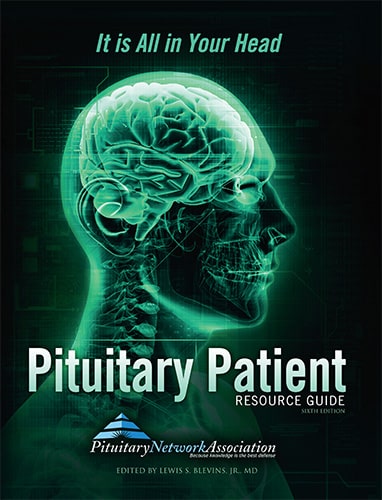
The Pituitary Patient Resource Guide Sixth Edition is now available! Be one of the first to have the most up-to-date information. The Pituitary Patient Resource Guide a one of a kind publication intended as an invaluable source of information not only for patients but also their families, physicians, and all health care providers. It contains information on symptoms, proper testing, how to get a diagnosis, and the treatment options that are available. It also includes Pituitary Network Association's patient resource listings for expert medical care.
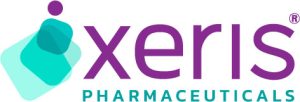
Xeris Pharmaceuticals is valued member of the PNA



